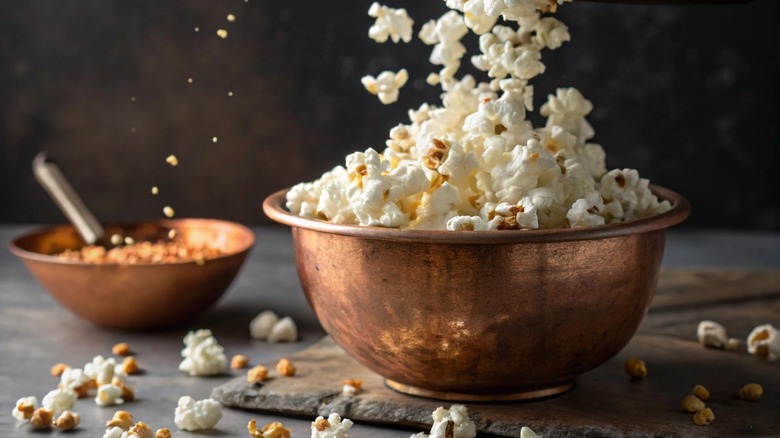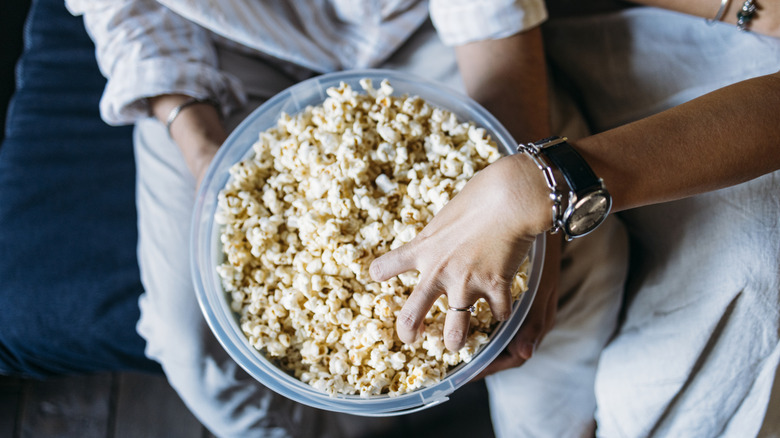What Could Happen If You Eat An Unpopped Popcorn Kernel
In our opinion, popcorn is the perfect snack for binge-watching your favorite shows. To prove it, we picked out the best store-bought microwave popcorn in a very scientific blind taste test. But tucked among those light, fluffy pieces of buttery corn are a few stubborn holdouts: the dreaded unpopped kernels. Those small, rock-hard remnants — known as "old maids" or "spinsters" — may seem harmless, but accidentally biting or swallowing one can pose a range of issues. Here's what could go wrong if you've chomped on the wrong kernel.
One of the most immediate risks of eating an unpopped kernel is dental injury. Just one bad bite can crack your tooth or damage dental implants. So, why don't all popcorn kernels pop? Some kernels remain intact because of a damaged hull which hasn't preserved the water content it requires to pop. Munch down on one with enthusiasm and you could be looking at a chipped molar, or a dislodged filling. Dentists see this kind of thing more often than you'd think — and it ain't cheap to fix.
Beyond dental expenses, unpopped kernels can present a legitimate choking risk. They're small, dense, and lightweight; the perfect shape to accidentally inhale or get stuck in your throat. This is particularly concerning for young children, older adults, or anyone who has difficulty swallowing. In fact, pediatricians actually recommend avoiding popcorn altogether for children under four.
Protect your tummy, don't eat the kernels
If you do accidentally swallow a kernel whole, odds are it'll pass through your system without much fanfare. However, if eaten in large quantities, or if you already have a sensitive tummy, this could lead to discomfort or bloating. In severe cases, the kernels can cause a clog in your gastrointestinal system called a "bezoar." Besides sounding like a "Harry Potter" spell, the bezoar can pass through your system, but you could need surgery to remove it.
If you're wondering what type of corn popcorn really comes from, it takes a special subspecies of flint corn, called Zea mays everta to produce those crispy, crunchy pieces. Most U.S. popcorn is grown in the Midwest, in an aptly named region called the Corn Belt. Surprisingly, even though Iowa produces the most corn in the U.S., Indiana sells and grows the most popcorn of any other state.
It's fairly easy to avoid eating kernels. After popping (while you wisely avoid the microwave's popcorn button), give the bowl a quick shake to let gravity send the heavy, unpopped kernels to the bottom. If you're the kind of person who eats directly from the bowl (no judgment), scoop from the top instead of blindly grabbing handfuls. Also, slow your roll, especially as you near the end of the bowl. Unpopped kernels may seem harmless, but they're sneaky. When it comes to dental danger or digestive distress, treat them like you would a cherry pit or a fish bone.

